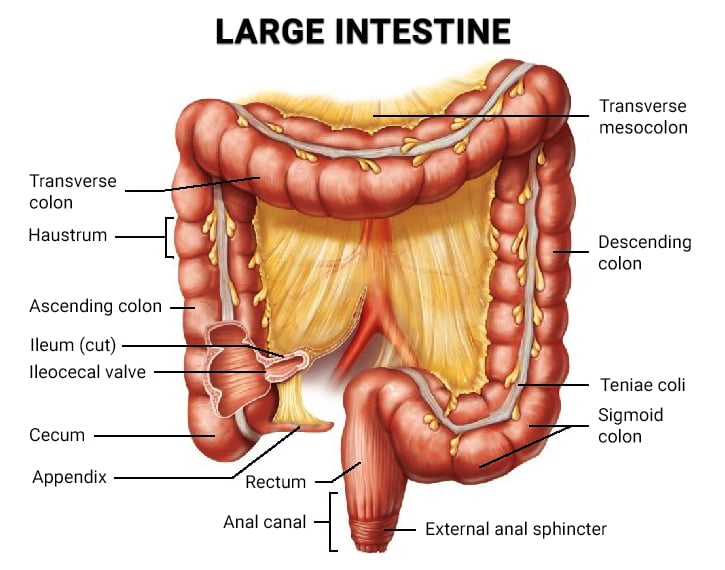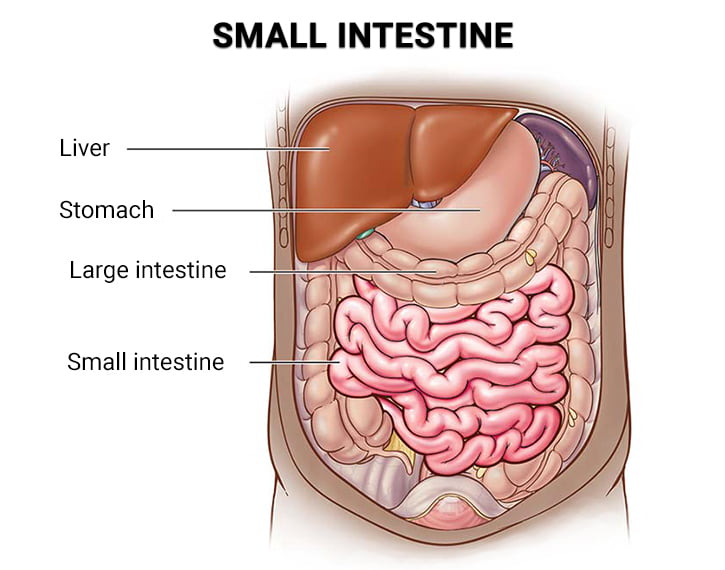Our digestive system plays a crucial role in our overall health and wellness. The food we eat goes through a long process before it benefits us. The small and large intestines are essential in digesting the food, maintaining the nutritional, fluid, and electrolyte balance, and removing the waste from the body. Any disease or disorder to the intestines must be accurately diagnosed and treated immediately to prevent health issues and other complications. Visit expert team at Manhattan Gastroenterology to learn about commonly experienced intestinal issues and how further complications can be prevented. The top-rated specialists help you understand whether it is possible to live without the small or large intestine and what treatment methods can relieve your discomforting symptoms.

The large and small intestines are the two significant components of the gastrointestinal tract, a varied and complex body system. It is popularly believed that the large intestinal is long, but this is not true. The term large and small refers to the diameter of the organs. The small intestine is long, about 20 to 22 feet, and thin, while the large intestine is short, just 5 feet wide.
As with any other body part or organ, the intestines are also at risk of diseases. These diseases may be congenital and present at birth or develop with time. These diseases may be caused by environmental influences or by genetics. Regardless of the cause, it is crucial to get the best treatment to prevent any disruption of the GI tract.
The large intestine – It is also known as the colon and spans most of the length and width of the abdomen in an upside-down U shape. The colon can be categorized into five parts, from right to left. They are:
- Cecum
- Ascending colon
- Transverse colon
- Descending colon
- Sigmoid colon
The large intestine removes and absorbs water from whatever we consume and is the catalyst for the fermentation of remaining materials. It also helps to move the solid matter, in the form of stool, into the rectum, from where it is expelled from the body.
The small intestine – It is also known as the small bowel. It has three parts. They are:
- The duodenum
- Jejunum
- Ileum
The small intestine plays a crucial role in absorbing the vitamins and minerals from the foods and drinks we eat and releases them into the bloodstream to keep the body active and functioning normally.
Can You Live Without Your Large Intestine?
The question is if you can survive without the large intestine. The shortest and most appropriate answer is YES. It may come as a surprise to you, but it is the truth. You can live without the large intestine as it has one primary role, water, and electrolyte absorption to concentrate the stool. It plays little role in metabolism, and people can live normal lives without their large intestine.
The large intestine processes and directs waste into the rectum, which is released during a bowel movement. It uses water to formulate and ultimately push the stool out, but there are times when the large intestine can develop a disease due to many causes. People are diagnosed with diverticulitis, cancer, or benign polyps during colonoscopy. The appendix is also a part of the colon, and some people need to have it taken out in case it is inflamed.
What Happens If the Large Intestine Needs to Be Removed?
Several diseases may require the removal of the entire large intestine. They include:
- Ulcerative colitis
- Crohn’s colitis
- Familial polyposis
These diseases require total proctocolectomy, the removal of the colon and rectum. If the anus is not affected by the disease and does not require removal, the small intestine can be reconstructed to work like the rectum (a J-pouch), which is connected to the anus to maintain continence. As the stool in the small intestine is more liquid, the patients will have more watery stools after surgery until the pouch adapts and learns to absorb fluid like the colon.
The diseased or affected colon is removed through a surgical procedure known as the colectomy. It can remove either part or all of the colon. Some people require a temporary colectomy in which a hole is made into the abdominal wall to remove the fecal matter. In contrast, others require a permanent colectomy to remove the entire thing. This decision depends on the health of the surrounding tissues after colectomy and how both ends can be attached. Your surgeon will tell you more about it and determine the need for temporary or permanent colectomy.
It becomes more difficult to achieve normal GI function after complete removal of the colon or large intestine, but with proper care and a doctor’s help, most people can live a healthy, routine life.
Can You Live Without Your Small Intestine?
This is the tricky part as the answer is NO. You cannot live without the small intestine. Surviving without your small intestine is next to impossible, and you may end up with severe complications as the small intestine performs crucial gastrointestinal functions. Some procedures remove a part of the small intestine, known as small bowel resection, to eliminate the problem.
There have been cases of diseases that require complete removal of the small intestine. The most common reasons for removing part of the small intestine include:
- Intestinal blockage from scar tissue or a tumor
- Damage from radiation therapy
- Cancer
- Congenital (birth) defects
- Short bowel syndrome in which half or more of the small intestine is missing or removed
- Other trauma or damage
Just like colon surgery, small bowels also require healthy tissues on either end for the surgical resection to create a connection for the GI tract. If there are insufficient healthy tissues, a hole is made in the abdomen, and the small intestine dumps its content into an external drain bag. It can be a temporary or even a permanent arrangement to ensure the patient’s wellbeing.
You Cannot Live Without the Small Intestine

The small intestine cannot be removed entirely due to the essential digestive processes it supports. Some patients may have to undergo surgery to remove parts of the small bowels that are affecting their health.
A malabsorptive bariatric surgery such as gastric bypass helps to address morbid obesity. It limits the number of calories absorbed by the small intestine. In many cases, people with Crohn’s, traumatic injury, cancer, and intestinal blockages also need to remove parts of their small intestine to prevent life-threatening issues.
Patients undergoing extensive small bowel resection may be left with short bowel. It can result in short bowel syndrome if most of the intestine is removed. In such cases, patients may require supplemental nutrition as the small intestine helps with the absorption of nutrients and electrolytes.
In specific cases, if a patient requires removal of almost the entire small bowel, they would end up with complications. The body will not be able to process essential nutrients and water, which may lead to nutritional deficiencies and dehydration. This such a case, there are two options. The diseased small bowel can be replaced with a healthy donor bowel, or the patient can be given intravenous nutrition. However, it may not work out in the long term as intravenous nutrition can put the patient at risk of liver disease.
Understanding the significance of the intestines and their vital role in the digestive process and overall wellbeing is essential. Any problems with digestion or intestines should be discussed with a qualified doctor. The gastroenterologists at Manhattan Gastroenterology are experts in dealing with matters related to digestion, GI tract, and conditions affecting the small and large intestines. They use advanced tools and diagnostics methods to determine the problems you are facing and come up with the best solutions to ensure you enjoy good gastrointestinal health without removing any part of your intestines. They recommend the best surgical options for your condition if needed for desired outcomes. The gastro specialists make all efforts to save healthy intestinal tissues and use the most suitable treatment methods that put you on the road to recovery and ensure long-term wellbeing.

